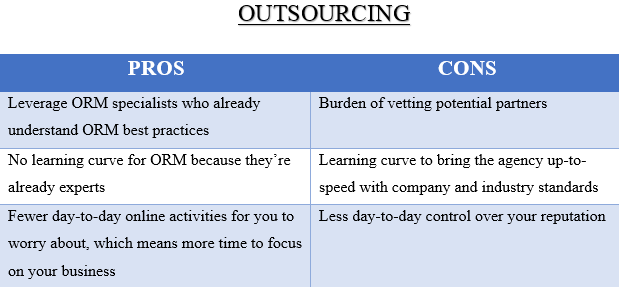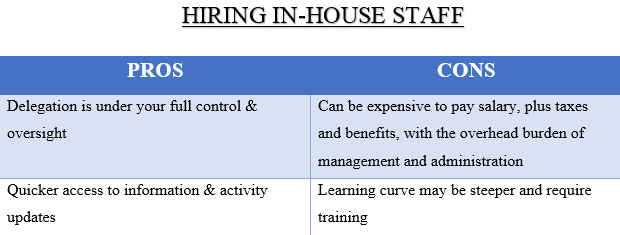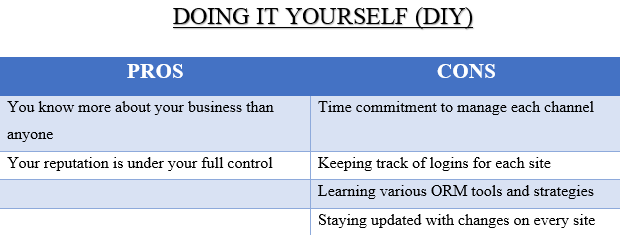The internet has undeniably affected how we, as consumers, search for and find services and products. Back in the day, to find information about a local plumbing service or a great place to have dinner on Valentine’s Day, we simply asked people if they had any experiences or reviews to share, or if they knew anyone who did. While we still do that to a degree, we don’t have to actually ask for recommendations anymore.
The gigantic, ever-growing encyclopedia known as the Internet now answers any questions we have. This can be a double-edged sword, depending whether online reviews fall in your favor or not. Online reviews can either raise your business up into viral popularity, or raze your business into bankruptcy.
All it takes is a few people to comment, “Don’t go to this place; it has bugs around the kitchen,” or, “My toilet still doesn’t work after I paid this guy to fix it!” Comments and reviews like these can decimate a business’s local following – not to mention its bottom line.
You may tell yourself, “I don’t have any negative comments, I don’t need to do this – nor do I have the time to start.” Even if your business’ online reputation is spotless, it can’t hold out forever. Some consumers will leave negative reviews that have nothing to do with the business, but with how they felt about their reaction to it. On Amazon, for instance, you can search for a top-rated book and still find people rating it negatively because it wasn’t what they were EXPECTING. It’s just a fact of life: you can’t please everyone 100% of the time.
That means you, as a business owner, can do everything right, and it still can result in a negative review because of the reviewer’s expectations. You could market your business differently to hopefully avoid that, but in today’s world, it’s not a guarantee or a strategy to “hope” that this sort of thing won’t happen to your business.
Business owners should start thinking more strategically about managing their online reputations. Let’s take a look at the top 5 questions business owners ask us as they start to learn about Online Reputation Management in Cleveland.
1. What is Online Reputation Management?
Online Reputation Management (ORM), is the practice of proactively monitoring what people are saying about your business, responding to any negative feedback, and promoting positive feedback. Simply put, it’s basically online customer service.
Where it differs from traditional customer service is that the arena is a lot larger than just your office. The playing field now covers many top review sites – some customized to particular industries (like Healthgrades for doctors or Angie’s List for contractors), some generalized (like Yelp or Foursquare, which list any local business), as well as hundreds of social media sites (like Reddit, Facebook, Twitter, or Google Plus). We haven’t even talked about the hundreds of blogs and websites (like Cleveland.com) that your business can also pop up in.
When you think about it, that’s a lot of ground to cover. Most of these sites require a login and password to respond to any comments or reviews, so now you need a list of password and logins to go with each site, which can be a lot to keep track of.
You can drop thousands of dollars on branding and advertising campaigns to project whatever image you want, but unless you take control of your online reputation and monitor what consumers are actually saying about your company, your marketing may all be in vain.
2. Is ORM just about handling negative reviews?
No! This is much more than just dealing with negative reviews or negative customers. This is about being proactive when it comes to your online brand, which means encouraging positive reviews at the same time you’re dealing with negative ones. In fact, proactively seeking positive comments and reviews from your customers is the best online reputation strategy a business owner can implement these days with regards to marketing. Companies could be creating more buzz and business for themselves if they only provided their customers with an easy way to review their business. This can be as simple as feedback cards stapled to receipts, to more elaborate tools like online Review Funnels that direct consumers to various channels based on their feedback.
By encouraging reviews strategically, you can augment the positive feedback while drowning out any negative feedback. You won’t have to worry about the occasional negative Nancy coming into your establishment because you already have a legion of positive reviews that will drown out unwarranted negativity. Did the last item you researched before buying have 100% positive feedback? Probably not, and that probably didn’t deter you from buying it because you rationalized the occasional unhappy customer out of the equation.
3. What if my business has negative reviews already?
Before you can respond to negative comments, you have to step inside the reviewer’s shoes. Are they trolls spreading online negativity for negativity sake, or did they have a legitimately negative experience with your business? Getting to the root of the problem can prevent it from popping back up. Besides, if you don’t know what to fix, responding to the comment with no practical solutions to combat whatever caused the complaint will show you are not serious about correcting problems that could push others away from your business.
Once you understand the consumer’s perspective, you can address the negative review on the channel or forum it was created on. Not responding to negative reviews is out of the question. This is something you HAVE to do, so handle every response with careful consideration. Start by thanking the reviewer for taking the time to leave feedback, and then without getting defensive, briefly explain how you’re handling the problem. Always be polite and professional. An honest, genuine response from a business owner who cares about each customer’s experience can actually salvage negative reviews.
4. What if the comments or reviews are false?
That will happen. I have had negative feedback on my ecommerce store from “customers” I can only assume are my competitors, leaving untrue comments because my sales impinge on their bottom line. If the reviews are downright defamatory, you can ask the site owner to take down the infringing gossip.
For more information on pursuing legal means to squash negative reviews, we’ll refer you to this article which explains a more in-depth process for rooting out illegal slander.
In the consumer’s eyes, a mountain of positive reviews holds more weight than the occasional hiccup of negative feedback. Besides, all it takes to get people to not see your negative reviews is to have that negative feedback pushed to the second page of the search engine – no man’s land, where more than 80% of consumers don’t even bother to look. You know what they say, “out of sight, out of mind”? This applies to ORM, as well.
5. How can I take back control of my business’ Online Reputation?
You have basically three choices when it comes to taking back control of your business’ online reputation, whether it’s tarnished and bruised or spotless and aimless. You can either outsource it, hire someone in-house to deal with it, or just do it yourself. No way is necessarily right or wrong, but there are some pros and cons with each option.
As you can see, every option has both pros and cons. Of course, we’d recommend outsourcing it to Bantamedia, but ultimately, it depends on your business goals and resources, and how much work is required to take your current online reputation to the star status you want.
Photo credit: Designed by Freepik




